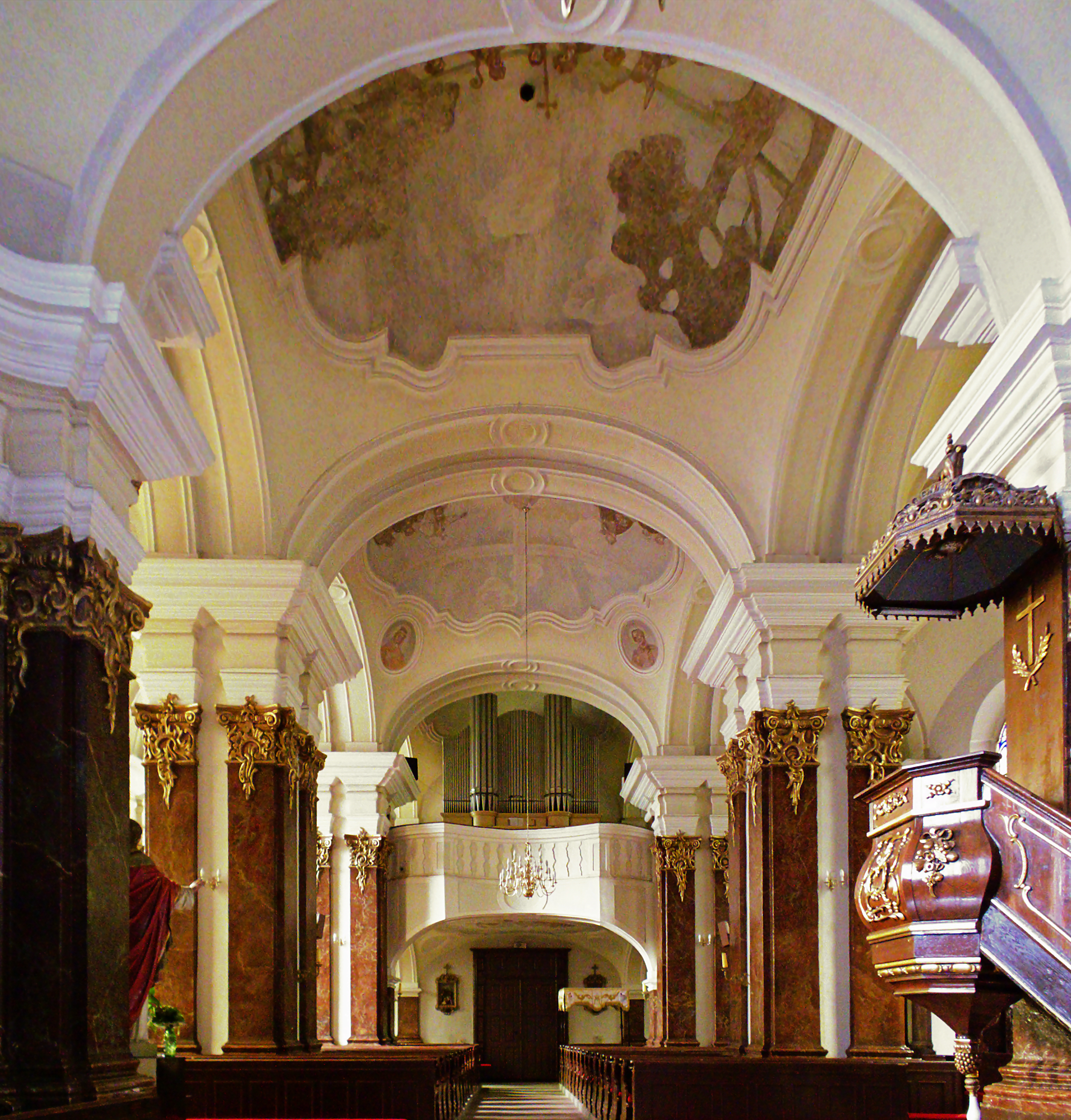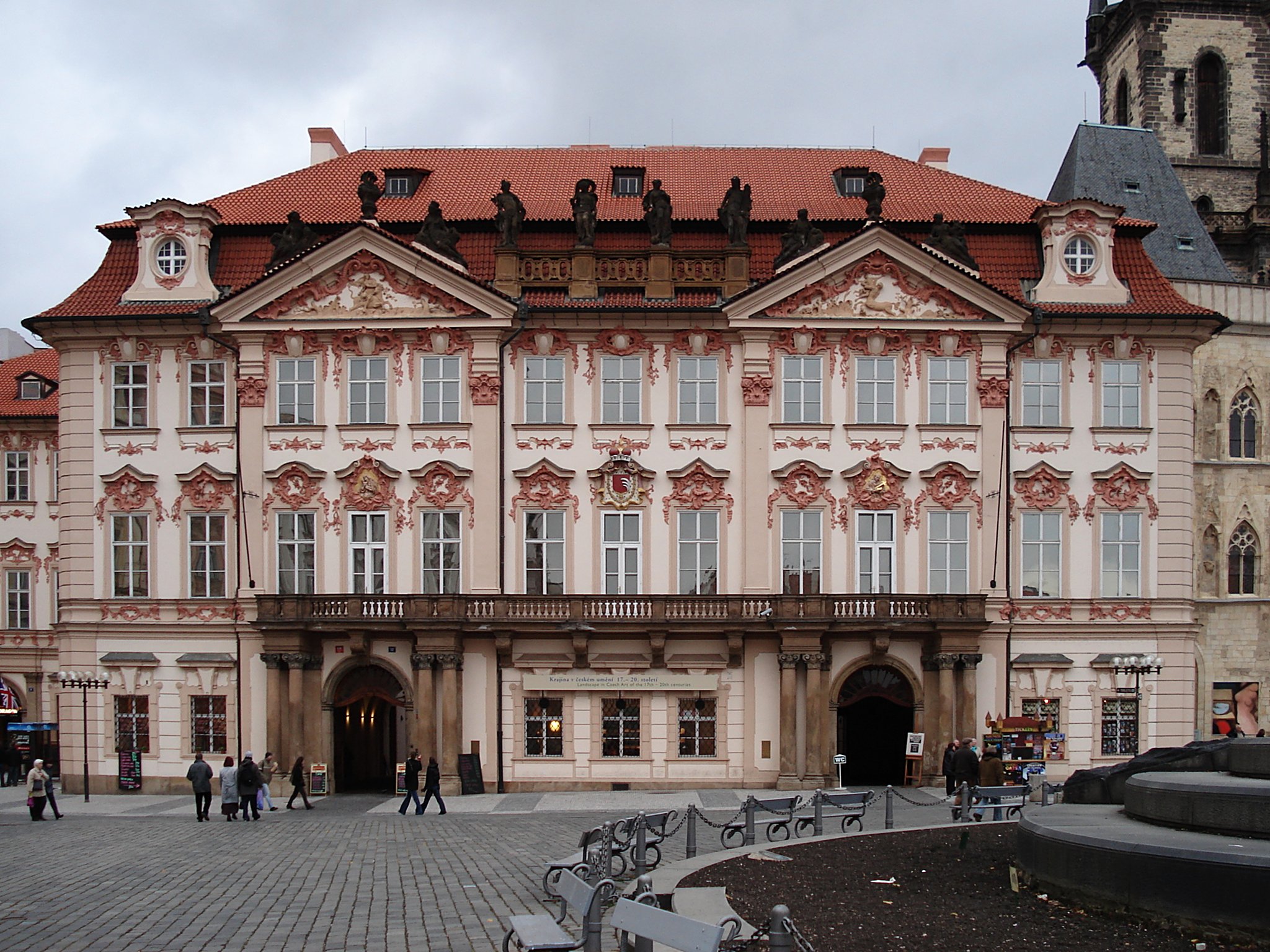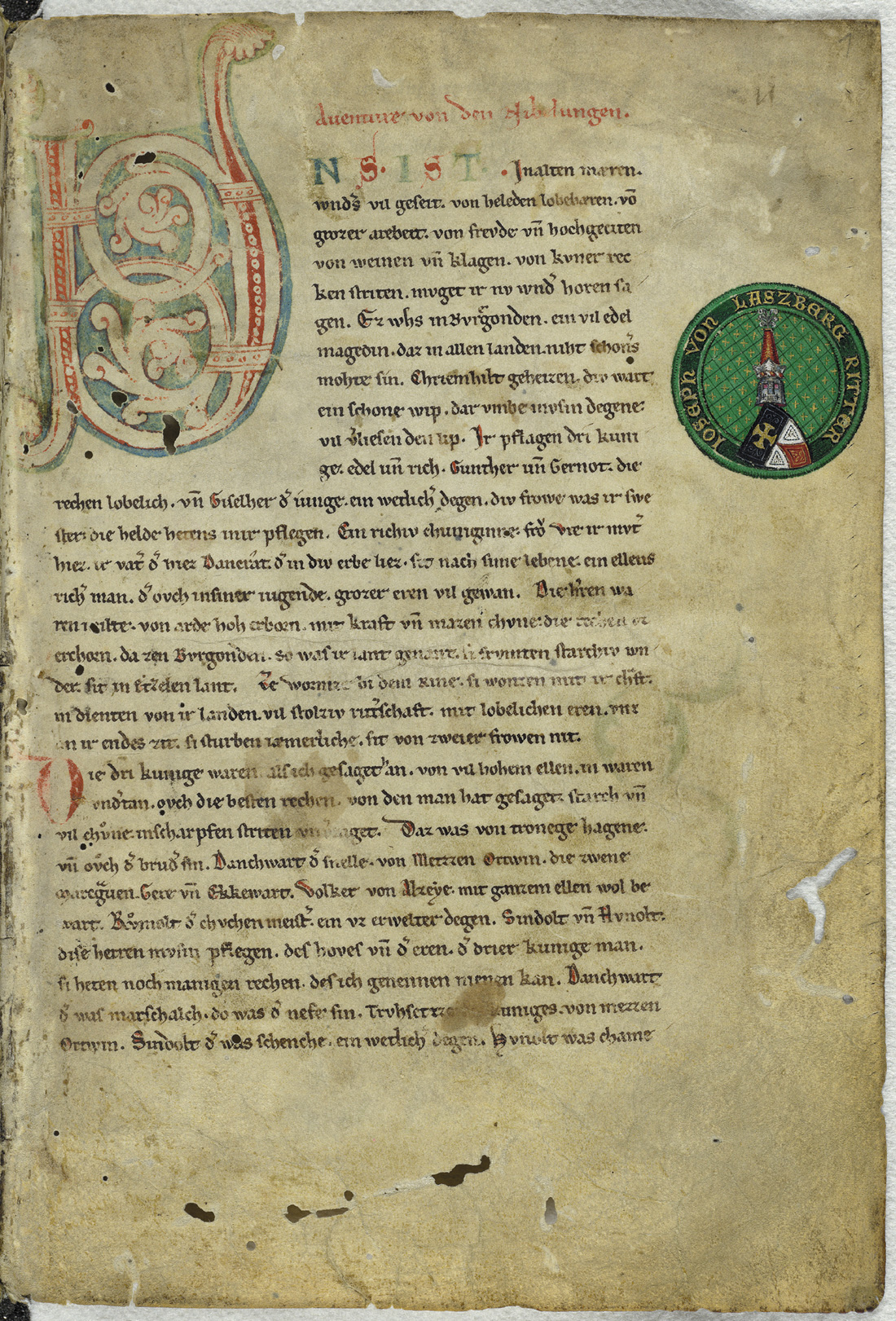|
Zalman Schocken
Salman Schocken (; October 30, 1877August 6, 1959) or Shlomo Zalman Schocken () was a History of the Jews in Germany, German Jewish publisher, and co-founder of the large Kaufhaus Schocken chain of department stores in Germany. Stripped of his citizenship and forced to sell his company by the German government, he aliyah, immigrated to Mandatory Palestine in 1934, where he purchased the newspaper ''Haaretz'' (which is still majority-owned by his descendants). Biography Germany Salman Schocken ("S" in Salman pronounced "Z") was born on October 30, 1877, in Margonin, Province of Posen, Posen, German Empire (today Poland), the son of a Jewish shopkeeper. In 1901, he moved to Zwickau, a German town in southwest Saxony, to help manage a department store owned by his brother, Simon. Together they built up the business and established a chain of Kaufhaus Schocken stores throughout Germany. Schocken commissioned German Jewish architect Erich Mendelsohn to design Modernist style buildings. ... [...More Info...] [...Related Items...] OR: [Wikipedia] [Google] [Baidu] |
Margonin
Margonin is a town in Chodzież County, Greater Poland Voivodeship, Poland, with 3,022 inhabitants (2016). History Margonin dates back to the 7th century, and in the 9th–12th it was a defensive stronghold, which became part of Poland after the establishment of the state in the 10th century. Margonin was first mentioned when Archbishop Jarosław Bogoria of Skotniki of Gniezno and the Bishop of Poznań, Jan Doliwa, agreed on 15 May 1364 that Margonin parish should belong to the Diocese of Poznań. Town rights were received in 1402. Margonin was a private town of Polish nobility, administratively located in the Kcynia County in the Kalisz Voivodeship in the Greater Poland Province. Much of the town was destroyed in 1655 during the Swedish invasion of Poland (''Deluge''), and the town lost its rights. They were restored on 20 July 1696. An orphanage was established in 1725. The Catholic Church was heavily damaged by a storm in 1737, and was repaired between 1753 and 1755. ... [...More Info...] [...Related Items...] OR: [Wikipedia] [Google] [Baidu] |
Saxony
Saxony, officially the Free State of Saxony, is a landlocked state of Germany, bordering the states of Brandenburg, Saxony-Anhalt, Thuringia, and Bavaria, as well as the countries of Poland and the Czech Republic. Its capital is Dresden, and its largest city is Leipzig. Saxony is the List of German states by area, tenth largest of Germany's sixteen states, with an area of , and the List of German states by population, sixth most populous, with more than 4 million inhabitants. The term Saxony (other), Saxony has been in use for more than a millennium. It was used for the medieval Duchy of Saxony, the Electorate of Saxony of the Holy Roman Empire, the Kingdom of Saxony, and twice for a republic. The first Free State of Saxony was established in 1918 as a constituent state of the Weimar Republic. After World War II, it was under Soviet occupation before it became part of communist East Germany and was abolished by the government in 1952. Following German reunificat ... [...More Info...] [...Related Items...] OR: [Wikipedia] [Google] [Baidu] |
Bücherei Des Schocken Verlags
The Bücherei des Schocken Verlags ("Library of the Schocken Verlag" in German) sometimes informally referred to as ''beliebte Reihe der Schocken-Bücherei'' ("popular series of the Schocken library") with its distinct, uniform style is widely considered "one of the most important manifestations of the spiritual life of Jews in Germany between 1933 and 1938" ("wichtigsten Erscheinungen des geistigen Lebens"). Conceived by Salman Schocken, in consultation with Buber, Moritz Spitzer, and Lambert Schneider, the series was "designed to select from the wellsprings of all Jewish literature texts of peculiar relevance to Jewish readers in Nazi Germany. In the spirit of the very first title--Isaiah's prophecies of comfort in the new translation by Buber and Rosenzweig--each selection vibrated with levels of meaning that comprised consolation and instruction." Spitzer, in his position as editor of the Verlag, invited Walter Benjamin to help with the series. Schneider, as co-owner, brought w ... [...More Info...] [...Related Items...] OR: [Wikipedia] [Google] [Baidu] |
Walter Benjamin
Walter Bendix Schönflies Benjamin ( ; ; 15 July 1892 – 26 September 1940) was a German-Jewish philosopher, cultural critic, media theorist, and essayist. An eclectic thinker who combined elements of German idealism, Jewish mysticism, Western Marxism, and neo-Kantianism, post-Kantianism, he made contributions to the philosophy of history, metaphysics, historical materialism, Aesthetics, criticism, aesthetics and had an oblique but overwhelmingly influential impact on the resurrection of the Kabbalah by virtue of his life-long epistolary relationship with Gershom Scholem. Of the hidden principle organizing Walter Benjamin's thought Gershom Scholem, Scholem wrote unequivocally that "Benjamin was a philosopher", while his younger colleagues Arendt and Adorno contend that he was "not a philosopher". Scholem remarked "The peculiar aura of authority emanating from his work tended to incite contradiction". Benjamin himself considered his research to be theological, though he eschewed ... [...More Info...] [...Related Items...] OR: [Wikipedia] [Google] [Baidu] |
Franz Kafka
Franz Kafka (3 July 1883 – 3 June 1924) was a novelist and writer from Prague who was Jewish, Austrian, and Czech and wrote in German. He is widely regarded as a major figure of 20th-century literature. His work fuses elements of Literary realism, realism and the fantastique, and typically features isolated protagonists facing bizarre or surreal predicaments and incomprehensible socio-bureaucratic powers. It has been interpreted as exploring themes of social alienation, alienation, existential anxiety, guilt (emotion), guilt, and absurdity. His best-known works include the novella ''The Metamorphosis'' (1915) and the novels ''The Trial'' (1924) and ''The Castle (novel), The Castle'' (1926). The term '':en:wikt:Kafkaesque, Kafkaesque'' has entered the English lexicon to describe bizarre situations like those depicted in his writing. Kafka was born into a middle-class German- and Yiddish-speaking Czech Jewish family in Prague, the capital of the Kingdom of Bohemia, which b ... [...More Info...] [...Related Items...] OR: [Wikipedia] [Google] [Baidu] |
Nibelungenlied
The (, or ; or ), translated as ''The Song of the Nibelungs'', is an epic poetry, epic poem written around 1200 in Middle High German. Its anonymous poet was likely from the region of Passau. The is based on an oral tradition of Germanic heroic legend that has some of its origin in historic events and individuals of the 5th and 6th centuries and that spread throughout almost all of Germanic languages, Germanic-speaking Europe. Scandinavian parallels to the German poem are found especially in the heroic lays of the ''Poetic Edda'' and in the ''Völsunga saga''. The poem is split into two parts. In the first part, the prince Sigurd, Siegfried comes to Worms, Germany, Worms to acquire the hand of the Burgundians, Burgundian princess Kriemhild from her brother King Gunther. Gunther agrees to let Siegfried marry Kriemhild if Siegfried helps Gunther acquire the warrior-queen Brünhild as his wife. Siegfried does this and marries Kriemhild; however, Brünhild and Kriemhild become riv ... [...More Info...] [...Related Items...] OR: [Wikipedia] [Google] [Baidu] |
Gerschom Scholem
Gershom Scholem (; 5 December 1897 – 21 February 1982) was an Israeli philosopher and historian. Widely regarded as the founder of modern academic study of the Kabbalah, Scholem was appointed the first professor of Jewish mysticism at Hebrew University of Jerusalem. Scholem and the Kabbalah Scholem is acknowledged as the single most significant figure in the recovery, collection, annotation, and registration into rigorous Jewish scholarship of the canonical bibliography of mysticism and scriptural commentary that runs through its primordial phase in the ''Sefer Yetzirah,'' its inauguration in the ''Bahir,'' its exegesis in the ''Pardes'' and the ''Zohar'' to its cosmogonic, apocalyptic climax in Isaac Luria's ''Ein Sof'' that is known collectively as Kabbalah. After generations of demoralization and assimilation in the European Enlightenment, the disappointment of messianic hopes, the famine of 1916 in Palestine, and in the midst of the catastrophe of the Final Solution in ... [...More Info...] [...Related Items...] OR: [Wikipedia] [Google] [Baidu] |
Martin Buber
Martin Buber (; , ; ; 8 February 1878 – 13 June 1965) was an Austrian-Israeli philosopher best known for his philosophy of dialogue, a form of existentialism centered on the distinction between the I and Thou, I–Thou relationship and the I–It relationship. Born in Vienna, Buber came from a family of observant Jews, but broke with Jewish custom to pursue secular studies in philosophy. He produced writings about Zionism and worked with various bodies within the Zionist movement extensively over a nearly 50-year period spanning his time in Europe and the Near East. In 1923, Buber wrote his famous essay on existence, ''I and Thou, Ich und Du'' (later translated into English as ''I and Thou''), and in 1925 he began translating the Hebrew Bible into the German language. He was nominated for the Nobel Prize in Literature ten times, and the Nobel Peace Prize seven times. Biography Martin (Hebrew language, Hebrew name: ''מָרְדֳּכַי,'' ''Mordechai'') Buber was born in ... [...More Info...] [...Related Items...] OR: [Wikipedia] [Google] [Baidu] |
Zionism
Zionism is an Ethnic nationalism, ethnocultural nationalist movement that emerged in History of Europe#From revolution to imperialism (1789–1914), Europe in the late 19th century that aimed to establish and maintain a national home for the Jews, Jewish people, pursued through the colonization of Palestine (region), Palestine, a region roughly corresponding to the Land of Israel in Judaism, with central importance in Jewish history. Zionists wanted to create a Jewish state in Palestine with as much land, as many Jews, and as few Palestinian people, Palestinian Arabs as possible. Zionism initially emerged in Central Europe, Central and Eastern Europe as a secular nationalist movement in the late 19th century, in reaction to newer waves of antisemitism and in response to the Haskalah, or Jewish Enlightenment. The arrival of Zionist settlers to Palestine during this period is widely seen as the start of the Israeli–Palestinian conflict. The Zionist claim to Palestine was base ... [...More Info...] [...Related Items...] OR: [Wikipedia] [Google] [Baidu] |
Franz Rosenzweig
Franz Rosenzweig (; ; 25 December 1886 – 10 December 1929) was a German theologian, philosopher, and translator. Early life and education Franz Rosenzweig was born in Kassel, Germany, to an affluent, minimally observant Jewish family. His father owned a factory for dyestuff and was a city council member. Through his granduncle, Adam Rosenzweig, he came in contact with traditional Judaism and was inspired to request Hebrew lessons when he was around 11 years old. He started to study medicine for five semesters in Göttingen, Munich, and Freiburg. In 1907 he changed subjects and studied history and philosophy in Freiburg and Berlin. Rosenzweig, under the influence of his colleague and close friend Eugen Rosenstock-Huessy, considered converting to Christianity. Determined to embrace the faith as the early Christians did, he resolved to live as an observant Jew first, before becoming Christian. After attending Yom Kippur services at a small Orthodox synagogue in Berlin, he under ... [...More Info...] [...Related Items...] OR: [Wikipedia] [Google] [Baidu] |
Chemnitz
Chemnitz (; from 1953 to 1990: Karl-Marx-Stadt (); ; ) is the third-largest city in the Germany, German States of Germany, state of Saxony after Leipzig and Dresden, and the fourth-largest city in the area of former East Germany after (East Berlin, East) Berlin, Leipzig, and Dresden. The city lies in the middle of a string of cities sitting in the densely populated northern Ore Mountain Foreland, foreland of the Elster Mountains, Elster and Ore Mountains, stretching from Plauen in the southwest via Zwickau, Chemnitz and Freiberg to Dresden in the northeast, and is part of the Central German Metropolitan Region. Located in the Ore Mountain Basin, the city is surrounded by the Ore Mountains to the south and the Central Saxon Hills, Central Saxon Hill Country to the north. The city stands on the Chemnitz River, which is formed through the confluence of the rivers Zwönitz (river), Zwönitz and Würschnitz in the borough of Altchemnitz. The name of the city as well as the names o ... [...More Info...] [...Related Items...] OR: [Wikipedia] [Google] [Baidu] |








